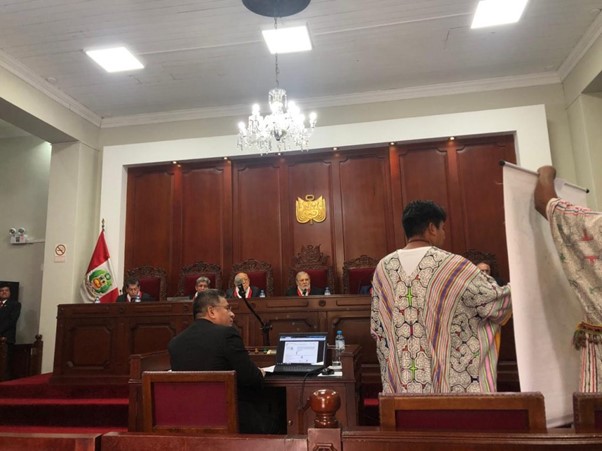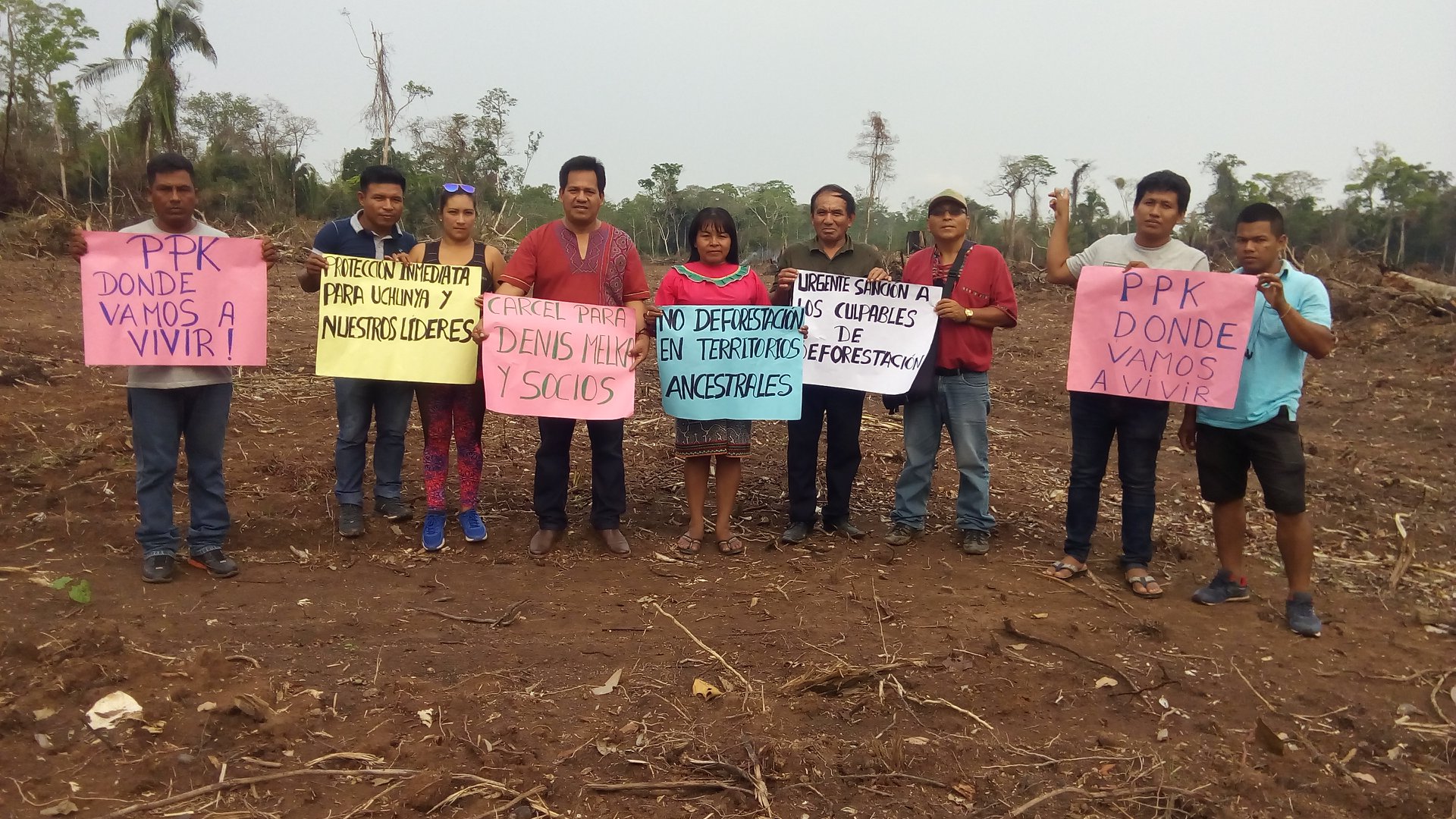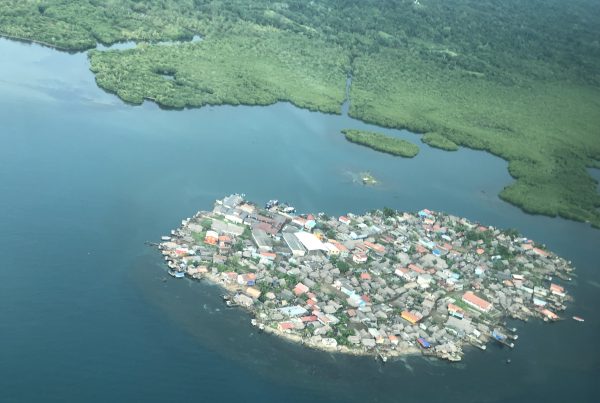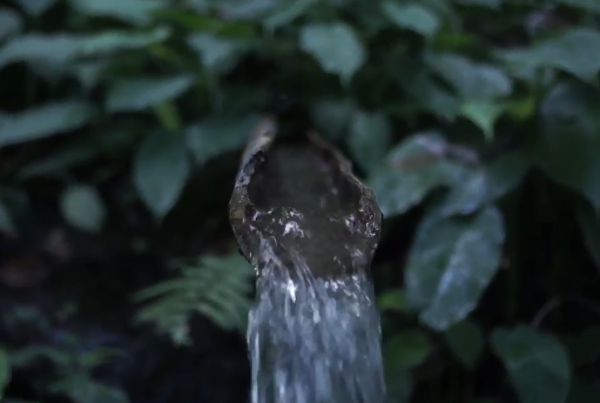The traditional lands of the Shipibo-Conibo indigenous community of Santa Clara de Uchunya in the Peruvian Amazon extend to more than 85,000 hectares. Historically, these lands have provided abundant game and fish, medicines, construction materials and clean water.
“We would go to our lands to eat paiche and all kinds of fish from the lake. My father would hunt there, my grandparents would hunt there. We walked freely there…”
Luisa Mori González, President of the Mothers Club and community leader
However, only 218 hectares have been formally titled. Since 2012 the palm oil company Plantaciones de Pucallpa S.A.C (now Ocho Sur P SAC) has illegally acquired and deforested about 7,000 hectares of the untitled lands to convert them to palm oil plantations. The environmental impact has been massive, with loss of lands and animals, as well as contamination from the spraying of agricultural chemicals. It has also brought violence, with armed groups of land traffickers clearing forests and those who protest facing death threats and intimidation. At the same time, this ongoing dispossession is fundamentally corroding the community’s way of life and ability to survive on their lands.
Despite threats, the community has made multiple efforts to hold the company to account. Plantaciones de Pucallpa was a member of the RSPO, and a formal complaint was made in 2015, which led to a ‘stop work’ order. The community also appealed to the company’s European financiers, the London Stock Exchange’s Alternative Investments Market, and various United Nations and regional human rights mechanisms, as well as launching a criminal case in Peru, which has resulted in a high level investigation led by the Special Prosecutor for Organised Crime.
Protest again palm oil. Credit: FECONAU
Author
- Forest Peoples Programme
Ecosystems
- Tropical forests
Topics
- Incentives and Finance
- Land Rights and Tenure
Type
- Short-form
Date
- This case study forms part of LBO-2, originally released in 2020.

In September 2019, leaders from Santa Clara de Uchunya and FECONAU with legal support from IDL took their land rights struggle before Peru’s highest court, the Constitutional Tribunal. Credit: FECONAU
Despite the RSPO ‘stop work’ order, suspension orders from the Ministry of Agriculture and Peruvian courts, and widespread condemnation from Peruvian forest and agricultural ministries, company operations continue. There is a general failure of enforcement, and the company has avoided suspending work, and large fines, by selling off its assets to new companies it has created and withdrawing from the RSPO and the London Stock Exchange.
The community has filed a ground-breaking constitutional lawsuit against the Peruvian Government for failing to process their land titling claim, which facilitated the company’s land grab. The case was heard by the Constitutional Tribunal in September 2019, with judgement pending at the time of writing.
In December 2019 the community secured a major victory when the world’s largest sovereign wealth fund, Norway’s government pension fund, decided to divest from Alicorp, a consumer goods company which, investigations had shown, was buying palm oil derived from Ocho Sur’s plantation.



